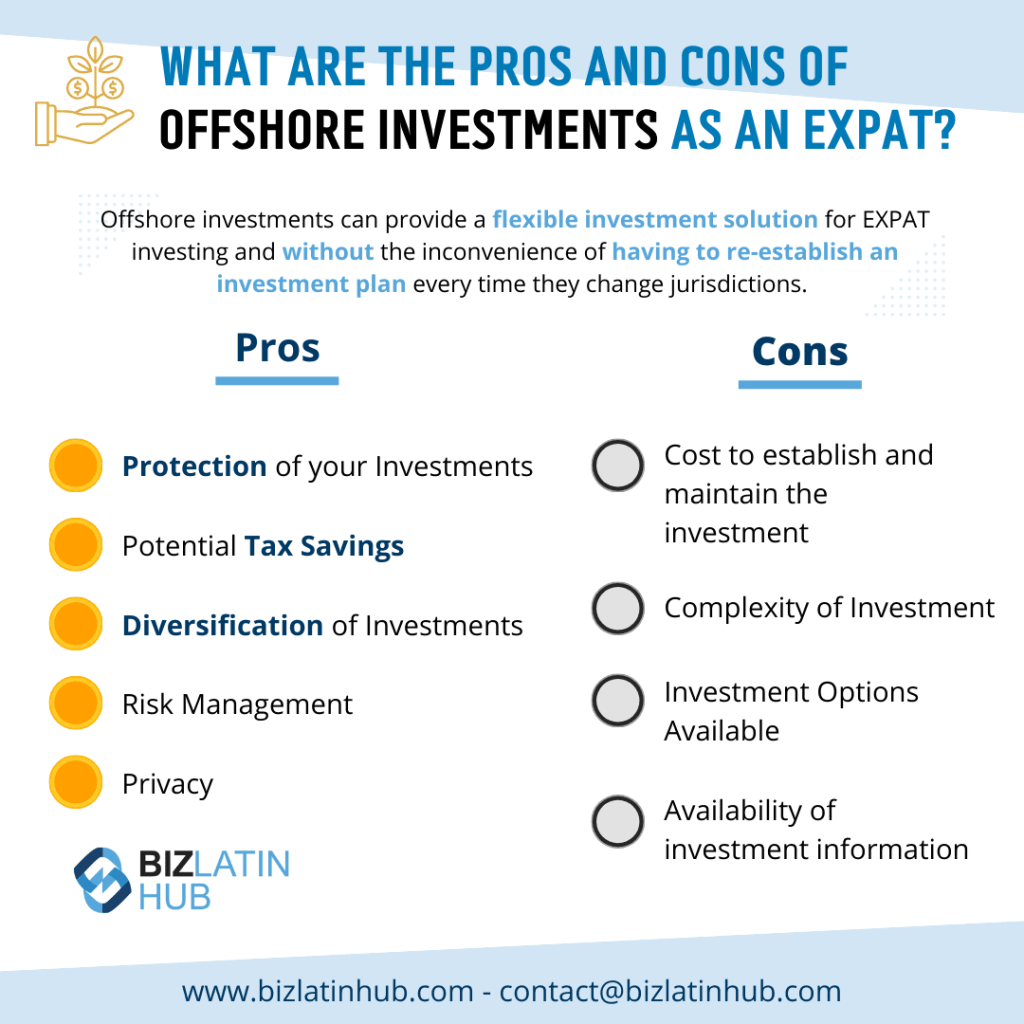All About Offshore Investment: Insights Into Its Benefits and Factors To Consider
Offshore financial investment has come to be a significantly relevant subject for people looking for to expand their profiles and boost monetary safety and security. As we check out the nuances of offshore investment, it comes to be noticeable that informed decision-making is important for maximizing its potential advantages while minimizing intrinsic risks.
Understanding Offshore Financial Investment
In the world of global finance, recognizing overseas financial investment is vital for people and entities looking for to maximize their monetary portfolios. Offshore financial investment describes the placement of possessions in banks outside one's nation of residence. This technique is usually utilized to attain different financial objectives, including diversification, property security, and possible tax advantages.
Offshore financial investments can include a large variety of monetary tools, consisting of supplies, bonds, shared funds, and property. Capitalists might select to develop accounts in jurisdictions understood for their desirable governing atmospheres, privacy regulations, and economic security.
It is necessary to acknowledge that overseas investment is not naturally synonymous with tax evasion or illicit tasks; rather, it offers legitimate functions for several financiers. The motivations for participating in overseas investment can differ extensively-- from looking for higher returns in industrialized markets to guarding assets from economic or political instability in one's home country.

However, potential financiers must also recognize the complexities involved, such as conformity with worldwide regulations, the requirement of due persistance, and understanding the lawful effects of offshore accounts. Generally, an extensive understanding of overseas investment is crucial for making enlightened economic choices.
Secret Advantages of Offshore Financial Investment
Offshore investment uses a number of essential advantages that can boost a financier's monetary technique. This can considerably increase total returns on financial investments.
Additionally, overseas investments frequently provide accessibility to a wider series of financial investment possibilities. Financiers can diversify their profiles with possessions that might not be conveniently available in their home countries, including worldwide supplies, property, and specialized funds. This diversity can minimize risk and improve returns.

Additionally, offshore financial investments can help with estate preparation. They make it possible for investors to structure their possessions in a means that decreases estate taxes and makes sure a smoother transfer of wide range to heirs.
Common Dangers and Difficulties
Purchasing offshore markets can provide different dangers and obstacles that call for mindful consideration. One considerable danger is market volatility, as overseas financial investments might undergo fluctuations that can affect returns dramatically. Investors should likewise know geopolitical instability, which can interfere with markets and impact investment performance.
Another challenge is currency threat. Offshore investments often include deals in international currencies, and unfavorable exchange rate movements can deteriorate earnings or increase losses. Offshore Investment. Additionally, limited accessibility to dependable information concerning overseas markets can impede enlightened decision-making, causing prospective mistakes
Lack of governing oversight in some overseas jurisdictions can also posture hazards. Capitalists may find themselves in settings where financier security is minimal, enhancing the risk of fraudulence or mismanagement. Differing economic practices and cultural mindsets toward financial investment can complicate the investment procedure.
Regulatory and lawful Considerations
While browsing the complexities of offshore financial investments, comprehending the lawful and regulative landscape is important for guaranteeing and guarding possessions conformity. Offshore financial investments are frequently based on a multitude of guidelines and laws, both in the capitalist's home country and linked here the territory where the financial investment is made. It is crucial to conduct complete due diligence to comprehend the tax obligation effects, reporting needs, and any lawful obligations that may develop.
Governing structures can vary substantially between jurisdictions, impacting whatever from tax to resources requirements for foreign investors. Some countries may use positive tax routines, while others enforce stringent laws that can deter investment. Furthermore, global arrangements, such as FATCA (International Account Tax Obligation Conformity Act), may obligate capitalists to report overseas holdings, increasing the need for openness.
Capitalists have to also understand anti-money laundering (AML) and know-your-customer (KYC) policies, which require financial institutions to verify the identity of their clients. Non-compliance can result in extreme fines, consisting of penalties and restrictions on financial investment tasks. Therefore, involving with lawful specialists concentrating on worldwide investment law is crucial to navigate this detailed landscape properly.
Making Informed Choices
A critical method is essential for making notified decisions in the realm of offshore financial investments. Comprehending the intricacies included calls for complete research study and analysis of numerous factors, consisting of market trends, tax effects, and legal structures. Investors need to assess their danger resistance and financial investment goals, ensuring positioning with the unique qualities of overseas opportunities.
Conducting due persistance is critical. This includes examining the trustworthiness of institutions, monetary experts, and investment cars. Inspecting the governing environment in the chosen jurisdiction is important, as it can dramatically impact the safety and earnings of investments. In addition, remaining abreast of economic conditions and geopolitical developments can offer useful understandings that notify financial investment approaches.
Involving with experts who focus on offshore investments can likewise improve decision-making. Offshore Investment. Their experience can lead capitalists with the complexities of worldwide markets, helping to identify click here for more potential challenges see page and rewarding chances
Inevitably, notified decision-making in offshore financial investments pivots on a versatile understanding of the landscape, a clear expression of individual purposes, and a commitment to ongoing education and learning and adaptation in a vibrant worldwide setting.
Final Thought
In final thought, overseas investment provides substantial benefits such as tax obligation optimization, asset protection, and accessibility to worldwide markets. By resolving these factors to consider, investors can efficiently harness the benefits of offshore financial investments while mitigating prospective disadvantages, eventually leading to educated and critical economic decisions.
Offshore investment provides several crucial benefits that can improve an investor's economic strategy.In addition, overseas financial investments frequently provide access to a broader range of investment opportunities. Varying economic practices and cultural perspectives towards financial investment can make complex the investment process.
